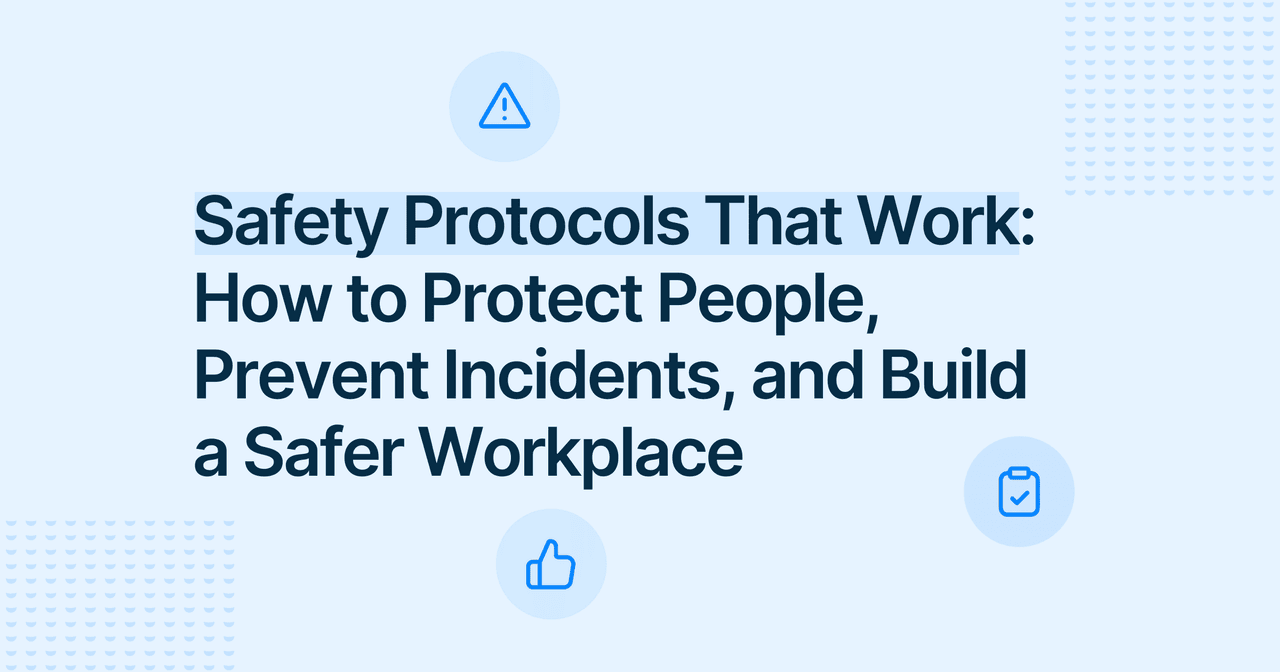



Centralize Reports & Cases
Replace outdated processes with modern, compliant workflows.
Legal & Compliance

Alaa El-Shaarawi
Copywriter and Content Manager
Published
2025-11-19
Reading time
8 min


Table of contents
Subscribe to our newsletter
Imagine a workplace where employees exchange quiet concerns in corridors but never speak up formally, while questionable payments, conflicts of interest, or attempts to gain unfair business advantages slowly take root.
This is the reality in many companies that look compliant with the UK Bribery Act 2010 (UKBA) on paper but lack the tools to turn policy into everyday behaviour. That’s why the UKBA is a lens into your organisational culture.
It expects any business operating in or connected to the United Kingdom to prevent bribery, protect whistleblowers, and demonstrate that anti-corruption principles are genuinely embedded in daily operations. Policies and training help, but without a trusted way for employees to raise concerns, even the best-designed compliance programmes can fail silently.
Anonymous reporting systems close that gap. They give employees a safe channel to speak up in good faith and give leadership early visibility into risks before they escalate into regulatory scrutiny or reputational damage.
In this guide, we explore why anonymous reporting is essential under the Bribery Act 2010, how to implement it effectively, and the practical steps that build a culture of integrity for employees and regulators.

Enforced since 2010, the UK Bribery Act applies to:
This applies to organisations operating in all UK jurisdictions, including Scotland, Wales, and Northern Ireland.
The Act addresses four main bribery offences:
The penalties are severe. Individuals can face up to ten years’ imprisonment and unlimited fines, while companies risk reputational damage and potential prosecution by the Serious Fraud Office (SFO).
To guide corporate compliance, the UK Ministry of Justice set out six principles of “adequate procedures”, which form the foundation of anti-bribery programmes (GOV.UK Bribery Act 2010 Guidance):
Real-world cases underscore these principles. For example, Rolls-Royce’s 2017 SFO settlement, which totaled £671 million, revealed gaps in monitoring and due diligence despite having policies, highlighting that written procedures alone are insufficient to prevent criminal offences.
And in 2020, Airbus agreed to pay €3.6 billion in a global settlement with authorities in the UK, France, and the US after investigators uncovered widespread bribery schemes used to secure aircraft contracts across multiple markets.
Over the years, the SFO has recovered billions in corporate penalties via Deferred Prosecution Agreements, underscoring how powerful enforcement combined with credible reporting really is.
How employees use internal reporting channels shows whether they trust leadership, feel safe raising concerns, and believe ethical behaviour is genuinely valued.
Lessons from the financial services sector illustrate this clearly. FCA multi-firm reviews have found that weak whistleblowing arrangements, especially poor governance or hard-to-access reporting channels, can discourage employees from speaking up
By contrast, firms that provide clear reporting channels, robust whistleblower protections, and visible top-level commitment tend to uncover more meaningful issues and prevent problems from being hidden.
Organisations that foster a culture of open reporting are better positioned to manage risks proactively, maintain trust during crises, and stop small issues from escalating into regulatory breaches.
Key elements of effective reporting channels include:
When these elements are in place, internal reporting highlights misconduct, exposes systemic issues, and reinforces a strong UK Bribery Act 2010 compliance culture.

Fear of retaliation is one of the biggest barriers to whistleblowing. Employees may hesitate to report misconduct—even clear bribery offences—if doing so could jeopardise their job, relationships, or career prospects. Anonymous reporting removes this barrier while maintaining accountability and trust.
Why anonymity matters:
The SFO emphasises that credible reporting channels are a key marker of a strong compliance programme. Organisations that protect anonymity and act on reports show they are proactively preventing bribery, not just reacting to it.
Anonymous reporting also captures early-stage concerns like patterns of unusual behaviour, questionable third-party interactions, or warning signs of weak controls before they escalate into regulatory or reputational risks.
Effective anonymous systems rely on:
Whistleblowing platforms like Faceup help operationalise these principles, offering secure, user-friendly reporting channels that align with the United Kingdom’s anti-bribery and corruption policy.
Creating an effective anonymous reporting system requires alignment between culture and process, not just good technology.
Practical steps include:
Together, these measures turn reporting into a proactive risk management tool rather than a mere formality. Platforms like Faceup integrate with internal policies to support compliance with the UK Bribery Act 2010 guidance.
However, technology alone cannot build trust. Leadership visibility, clear communication, and tangible outcomes are what make anonymous reporting meaningful. When embedded in wider anti-corruption and anti-bribery practices, compliance becomes a lived cultural commitment across the organisation.
This alignment means anonymous reporting contributes to broader governance expectations, feeding into internal audit cycles, board reporting, and ESG transparency frameworks; areas increasingly scrutinised by investors and regulators.
Understanding what constitutes bribery under the UK Bribery Act 2010 is essential for turning policy into practice.
Common offences include:
Even facilitation payments, sometimes seen as “minor”, are illegal under the UKBA, unlike the US Foreign Corrupt Practices Act (FCPA). This is particularly important in sectors LIKE construction, engineering, and international trade, where associated persons are common.
Employees operating in high-risk jurisdictions must understand that the UKBA applies globally, regardless of local norms. This international reach is one of the Act’s most distinguishing features.
Being aware of these offences allows organisations to target training, reporting, and monitoring in high-risk areas, reducing exposure to criminal penalties and unlimited fines.
Although both the UK Bribery Act (UKBA) and the US Foreign Corrupt Practices Act (FCPA) target corruption, the UKBA is broader, stricter, and more expansive in scope.
Key differences:
| Area | UKBA | FCPA |
| Scope of Bribery | Covers public and private sector bribery | Focuses mainly on foreign public officials |
| Facilitation Payments | Prohibited entirely | Permitted in limited circumstances |
| Corporate Liability | Creates strict liability for failure to prevent bribery | Requires proof of intent; no strict liability |
| Commercial Bribery | Fully covered | Not typically covered |
| Extraterritorial Reach | Very broad; applies to any organisation doing any part of its business in the UK | Broad, but generally applies to US companies, issuers, and individuals |
| Defences | “Adequate procedures” is the primary defence | No equivalent “adequate procedures” defence |
| Enforcement Style | SFO emphasises culture, reporting systems, and prevention | DOJ/SEC focus on books & records and anti-corruption controls |
For multinational organisations, these differences mean compliance programmes cannot rely solely on US-style controls. Policies, training, due diligence, and reporting channels must meet the higher bar set by the UKBA to avoid criminal exposure and reputational consequences.
A reporting system is only as effective as the insights it produces. Measuring performance helps organisations understand not just procedural efficiency, but whether employees genuinely trust the process.
Key metrics include:
Regular monitoring enables compliance teams to refine workflows, strengthen controls, and demonstrate proactive prevention to regulators.
These insights also help leadership understand the organisation’s cultural health: where trust is strong, where communication needs reinforcement, and where deeper systemic risks may be emerging.
Anonymous reporting isn’t just a risk-management tool. It’s a strategic asset. It uncovers issues earlier, protects employees, and signals to regulators that the organisation takes anti-corruption obligations seriously.
In today’s environment, where ethical conduct directly shapes brand reputation, investor confidence, and long-term resilience, a trusted reporting system becomes a differentiator rather than a checkbox.
Platforms like Faceup help embed these practices, offering secure, confidential reporting channels that support UK Bribery Act 2010 expectations and integrate into wider compliance frameworks.
Ready to strengthen your compliance culture? Book a demo with Faceup to see how anonymous reporting can become a reliable, high-impact part of your anti-bribery strategy.




Replace outdated processes with modern, compliant workflows.
Keep Reading

Alaa El-Shaarawi2026-02-108 min
Legal & Compliance

Alaa El-Shaarawi2026-02-098 min
Workplace Environment

Marie Roland2026-02-033 min
Workplace Environment

Alaa El-Shaarawi2026-02-029 min
Workplace Environment